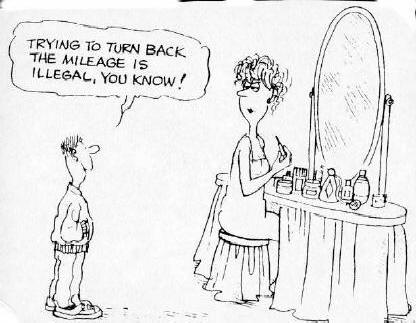

Vision 2000
Vision 2000 was a curriculum proposal written by the New England Council of University Women (NECUW) in 1998 calling for a revision of the curriculum at the various land grant universities throughout New England. Initially introduced for consideration at the University of Massachusetts, the document is seen by the NECUW as a proposal "calling for individual campuses to create a working agenda to meet the educational needs of women."
Below are two commentaries on the proposal, one written by by Daphne Patai and published in the Chronicle of Higher Education, and the other written John Leo and published in U.S. News and World Report. Consider the original proposal and the two commentaries in the light of Kuznar's quote regarding the goal of science.
"A concern with knowing the world, rather than advocating a view of the world because it confirms some political, ideological, or religious project, has always been fundamental to scientific philosophy."
--Lawrence Kuznar (1997)
* * * * *
Why Not a Feminist Overhaul of Higher Education?.
by
Daphne Patai
* * * * *
|
"No Takeovers, Please"
John Leo
U.S. News & World Report (January 19, 1998)
When people draw up short lists of the nation's most politically correct campuses, the University of Massachusetts at Amherst is usually among the top five or six. Almost anything can happen there, from protests about the school's Minuteman mascot (he is military; he is white) to the takeover and trashing of offices, regularly followed by concessions to those who did the trashing.
Now U. Mass has hatched a plan that could send it to the top of PC lists everywhere. It's called "Vision 2000," a program drawn up by women's studies officials and other feminists at U. Mass. and the five other land-grant universities of New England. The presidents of three of those universities--Vermont, New Hampshire, and Maine--have already endorsed the plan "in spirit." This is surprising, since the program seems to dissolve traditional academic freedom and call for a feminist overhaul of every campus department. Daphne Patai, a U. Mass professor of literature who coauthored Professing Feminism: Cautionary Tales From the Strange World of Women's Studies, calls the plan "an attempted coup," "a stunningly imperialistic move to put in place a questionable feminist agenda, thinly disguised as a plea for equal opportunity and fairness." Ann Ferguson, director of women's studies at U. Mass, obviously disagrees, but she acknowledges that traditional academic freedom would have to be modified. She told the U. Mass faculty senate, "We can't lose track of the wider goal in order to defend some narrow definition of academic freedom."
Coming soon. The plan, which the framers want to take nationwide, calls for "transforming the curriculum." This transformation would be "best conducted with guidance from an autonomous women's studies site." Every academic department would have to hold an annual seminar on gender issues; gender would be "introduced into all pertinent programs of institutional research."
All students and professors would undergo gender sensitivity training. Faculty would be held accountable if their "pedagogies" (teaching styles) were not "woman-friendly" or if men were "overrepresented" in the curriculum. Teachers who didn't comply would be denied promotions, raises, and other benefits.
Other penalties are listed for any department with high female dropout rates, apparently a measure aimed at math and science teachers. The university would withdraw its support and recognition from any "group" with a higher rate of sexual harassment or sexual violence than the campus average. So presumably fraternities, sports teams, or social clubs that exceed an average number of reported harassments would be eliminated.
The document's ban on the "overrepresentation" of males in the curriculum could mean, for instance, that a course on Renaissance art would somehow have to find that half of the great artists of the period were female, though 99 percent were male, since women were excluded or discouraged from artistic work at the time. Presumably a course on 19th-century American quilt making would have the opposite problem in finding a correct retroactive quota.
The apparently innocent term "women-friendly pedagogies" might be enough to revamp the campuses all by itself. At colleges and law schools around the country, some feminists insist that abstract argument, debating, logic, grading, and calling on students in class who don't wish to be called upon are all male techniques that many women resent. In this view, "female" knowledge depends heavily on personal experience, feelings, and cooperation rather than competition or striving for excellence.
Campus feminists, like most multiculturalists, tend to believe that all knowledge is constructed and that college women are being spoon-fed "male" or "white male" knowledge that must be deposed and replaced by "new knowledges" created by women and minorities. This world view turns the debate away from learning and toward a politicized power struggle to control the curriculum. "Vision 2000" wants to "utilize institutional research capacity to produce the data necessary to raise consciousness, instigate action, and monitor progress," a clear indicator that even the collection of data must now be politicized. Money, too, is supposed to follow the new politics. The plan calls for the universities to divert funds toward "marginalized and underrepresented groups."
A few of the women's studies programs seem to be serious academic programs, interested in ideas, evidence, debate, and an open search for truth. But most aren't. Most are part therapy group, part training grounds for feminist cadres to fight the patriarchy. It's a close question whether these politicized outposts should be academic departments at all. The "Vision 2000" proposal to make them campuswide supervisors of courses and faculty is stupefying. The modern university is not known as a place of great courage or common sense. Let's hope enough of both are found on the six campuses to put this plan to sleep.
|
* * * * *
|
|
|
|
* * * * *
|
|
|